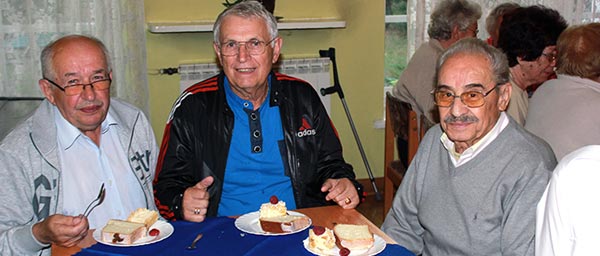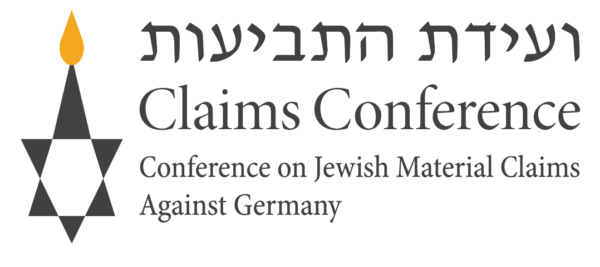Poland

Survivors participate in a 10-day rehabilitation program at the Srodborow facility outside of Warsaw. This program assists isolated and disabled Nazi victims in need of psychological support and rehabilitation in a Jewish environment.
10-day rehabilitation programs operated by the Commission held twice a year at the Srodborow facility outside of Warsaw. This program assists isolated and disabled Nazi victims in need of psychological support and rehabilitation in a Jewish environment.
Activity
Beginning in January 2022, CEEF payments increased to €600 per month due to Claims Conference negotiations with the German government. The Claims Conference negotiates on an ongoing basis with the German government to include additional Nazi victims in compensation programs, increase payments, and provide increased funds for social services.
Social conditions in Poland remain difficult for the elderly as the state continues to cut public health care spending in its bid to meet the European Union’s Eurozone entry criteria. Furthermore, pension levels for seniors are among the lowest in the region. The Claims Conference’s primary social welfare partner in Poland is the Central Jewish Welfare Commission, an umbrella group comprising all major Polish Jewish organizations including the Association of Children of the Holocaust in Poland, the Social and Cultural Association of Jews in Poland, the Jewish Religious Communities of Poland, and the Association of Jewish Combatants and Victims of the Second World War.
The Central Jewish Welfare Commission has prioritized four service areas for Nazi victims:
- Homecare is provided by caregivers who assist with housekeeping, shopping, laundry, cooking meals, and errands. Personal care is provided for Nazi victims who have recently undergone surgery or suffer serious illness and are no longer mobile.
- The Commission operates a food program which reimburses the cost of hot meals and basic food items for the neediest and most vulnerable clients. For those who are home-bound, volunteers deliver the hot meals to the clients’ residence.
- The medication program helps beneficiaries who cannot afford the growing cost of prescription drugs.
- An emergency assistance program provides short-term help to ease immediate financial burdens. Categories of assistance often include housing related costs, medical care, medical products such as wheelchairs and hearing aids, funds to prevent utility shut-off, clothing needed for the winter, emergency food, and medicines.
For Nazi victims, this organization also provides case management, winter relief, clothing programs, socialization programs, minor renovations and repairs of apartments, medical supplies and equipment, in-home rehabilitation or at local clinics, medical care and a volunteer program to visit homebound clients. A transportation program allows clients with limited mobility to attend doctor appointments, rehabilitation sessions and to participate in the community’s social and cultural activities.
Of particular note are the 10-day rehabilitation programs operated by the Commission held twice a year at the Srodborow facility outside of Warsaw. This program assists isolated and disabled Nazi victims in need of psychological support and rehabilitation in a Jewish environment.
Allocations are also made to the Association of Children of the Holocaust in Poland, which helps child survivors share their experiences and provides them with meaningful support including socialization and mental health programs. The organization also provides medical and financial assistance to vulnerable Righteous Gentiles living in Poland. The Claims Conference supports group and individual psychotherapy for Nazi victims, who are unable to pay for these services themselves.
Beginning in 1995, the Claims Conference provided significant funding for the renovation of the Srodborow facility, which includes the purchase of equipment and furniture. Claims Conference capital improvement projects in Poland also include the renovation of the Nozyk Synagogue (2001), which housed a senior day center program and is the last remaining pre-war synagogue in Warsaw, and the renovation of the kosher canteen for the Jewish community in Wroclaw (2000).

